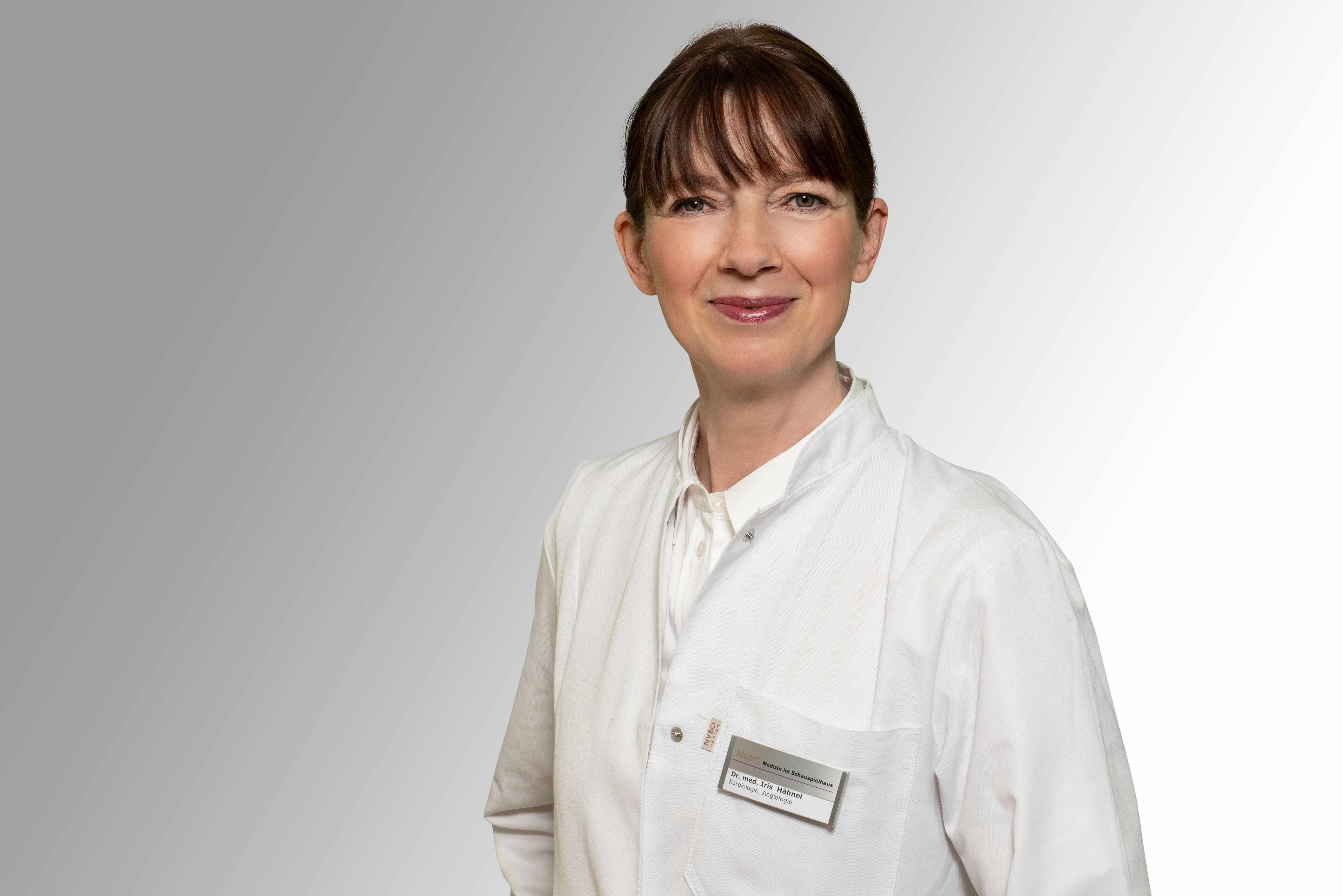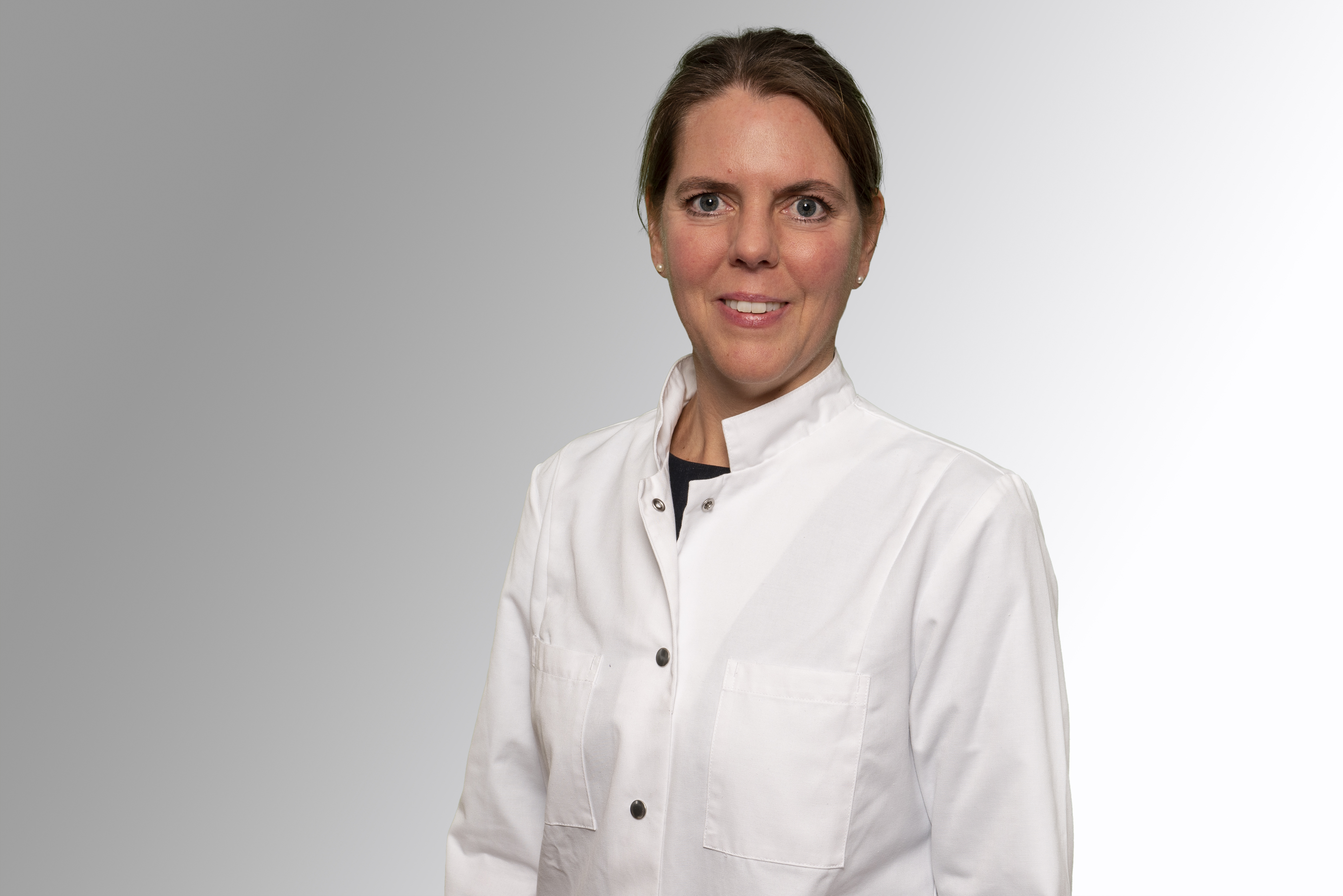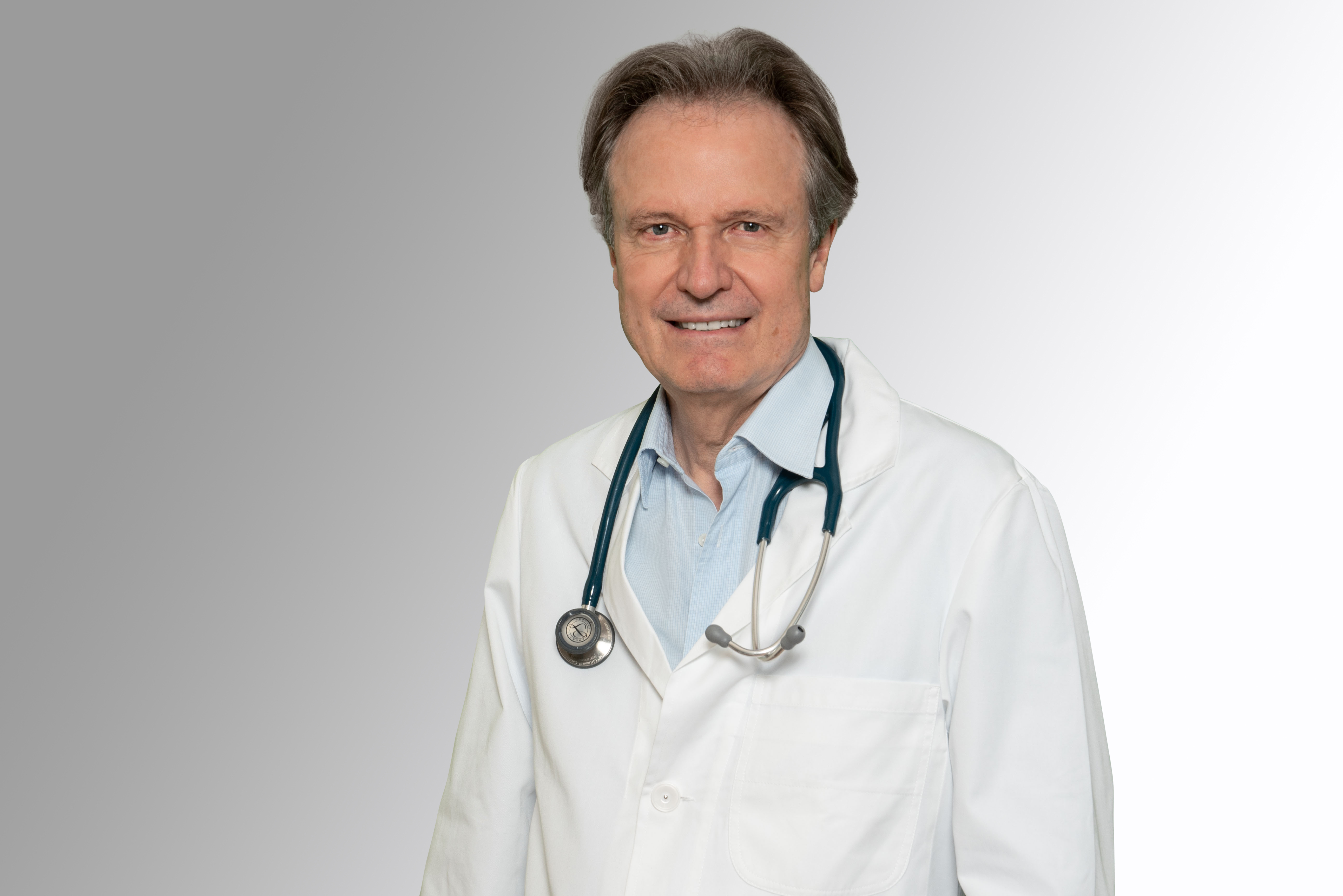Cardiology im Schauspielhaus
What brings you to us?
Common diseases
Coronary heart disease (CHD)
Coronary heart disease (CHD) is a disease in which the coronary vessels (coronary arteries) become narrowed or blocked by plaque deposits. The coronary arteries supply the heart with oxygen-rich blood. The deposits in these vessels cause less blood and oxygen to reach the heart muscle, which initially leads to symptoms such as a feeling of tightness and chest pain (angina pectoris), especially under stress. If the heart continues to be undersupplied with oxygen, this can lead to a heart attack.
Heart attack
In the event of a heart attack, emergency hospitalisation is mandatory (ambulance number: 144).
It occurs when the blood flow and oxygen supply to the heart muscle are suddenly interrupted. This happens when a blood clot blocks a coronary artery that supplies the heart with oxygen. Without sufficient oxygen, the affected tissue dies within a short time and the heart muscle can be permanently damaged. Symptoms of a heart attack can include chest pain, shortness of breath, nausea, cold sweats and pain that radiates to the arms, neck or upper abdomen. A heart attack is a medical emergency and requires immediate treatment to restore blood flow to the heart and minimise damage. This can be achieved through medication, catheter treatment or bypass surgery. After a heart attack, lifestyle changes and taking medication to prevent further events are crucial.
Heart valve diseases
Valvular heart disease occurs when one or more of the four heart valves do not function properly. By opening and closing, these valves regulate the blood flow in the heart and ensure that the blood flows in the right direction. Heart valve disease can be caused by either narrowing of the valves (stenosis) or leaky valves (insufficiency). The most common is aortic valve stenosis followed by mitral valve insufficiency, aortic valve insufficiency and mitral valve stenosis.
The causes of valvular heart disease vary. Some valve diseases are congenital or develop in the course of life. Others are caused by inflammation or after a heart attack. Treatment can range from medication to relieve symptoms to surgery to repair or replace the affected heart valves.
Arterial hypertension
Hypertension is a condition in which the pressure of the blood in the arteries (oxygen-rich blood vessels) is permanently elevated. This increased pressure puts a strain on the heart and blood vessels, which can lead to various health problems, including heart attack, heart failure, stroke, kidney failure and other serious complications. Often, high blood pressure does not cause any recognisable symptoms, which is why it is important to measure blood pressure at regular intervals. Treatment can include lifestyle changes such as a healthy diet, exercise and stress management, as well as the administration of medication.
Heart failure
Heart failure is a cardiac insufficiency that results in the heart no longer being able to pump enough blood around the body to supply the organs and tissues with oxygen and nutrients. Typical symptoms of heart failure are shortness of breath, coughing, reduced performance, pass water at night or sudden weight gain. Treating the underlying diseases, maintaining a healthy lifestyle and drug therapy can help to prevent or alleviate heart failure.
Cardiac arrhythmia
The heart normally beats in a regular pattern that is triggered by electrical impulses. In the case of a cardiac arrhythmia, this rhythm can be disturbed, either by heartbeats that are too fast (tachycardia), too slow (bradycardia) or irregular, such as arrhythmias or atrial fibrillation. In some cases, arrhythmias are harmless, but they can also be dangerous and should therefore be evaluated by a cardiologist.
Herzmuskelerkrankungen
Text bald verfügbar
Investigations
- Echocardiography
- Electrocardiogram (ECG)
- Exercise ECG (ergometry)
- Long-term ECG
- 24h blood pressure measurement
Therapy
In cardiology, various therapeutic methods are used to treat heart diseases and support the cardiovascular system. In the outpatient setting, such as in our practice, the focus is on pharmacological therapy and advice on maintaining a healthy lifestyle. For therapies that we cannot perform at the MEDIS practice, we collaborate with a long-standing network of specialists to find the optimal solution for you.
Pharmacological Therapy
In cardiology, various medications can be used to control high blood pressure, lower cholesterol levels, treat arrhythmias, improve heart function, and prevent the formation of blood clots.
Lifestyle Changes
A healthy lifestyle is essential for physical health. Dietary changes, regular physical activity, smoking cessation, and participation in cardiological rehabilitation all contribute to improving heart health and reducing the risk of cardiovascular diseases, significantly supporting heart function and the cardiovascular system.
Interventional Procedures
These include catheter-based procedures such as percutaneous coronary intervention (PCI), where narrowed or blocked coronary arteries are dilated with a balloon and often supported with a stent, as well as procedures for treating heart valve diseases, such as percutaneous aortic valve implantation (TAVI).
Surgical Interventions
These include bypass surgeries to bypass blockages in the coronary arteries, heart valve surgeries, heart transplants, and surgeries to treat congenital heart defects.
Electrophysiological Procedures
These include catheter ablation, where irregular heart rhythms are corrected using electrodes in the heart, as well as the implantation of pacemakers, implantable cardioverter-defibrillators (ICD), or cardioverter-defibrillator systems with cardiac resynchronization therapy (CRT) to treat heart rhythm disorders.
Patient information / FAQ
Heart disease often raises many questions. To give you an overview, we have summarised some of the most frequently asked questions in cardiology.





